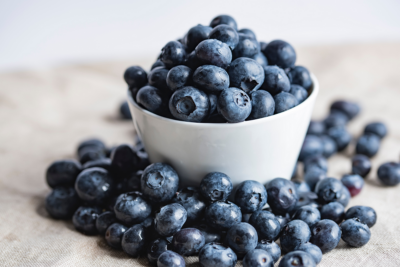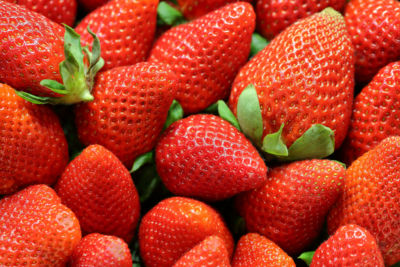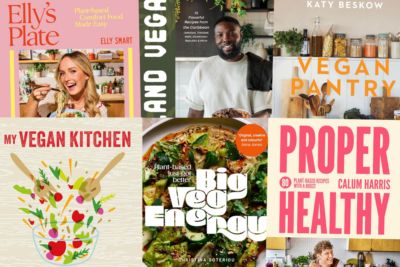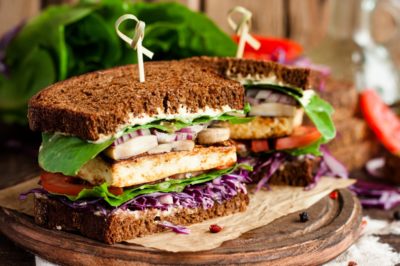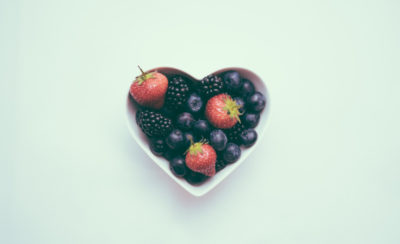Cholesterol levels are a risk factor for coronary heart diseases, which are the leading cause of death worldwide. However, there is much we can do to protect ourselves, and studies show that cholesterol levels tend to be lower in vegans than in the rest of the population.

“Evidence strongly indicates that high cholesterol can increase the risk of narrowing of the arteries atherosclerosis, heart attacks and stroke.” – NHS UK
Our bodies need a small amount of cholesterol to build the structure of membranes and to make hormones and produce vitamin D, but our bodies make almost all that we need.
The remainder comes from our food, either directly from cholesterol in animal products or through saturated fat. But the modern western diet contains far too much of these, and that’s where problems begin.
cholesterol from food
Only animal products – meat, dairy and eggs – contain cholesterol, and most saturated fat also comes from animal products, too. Butter, meat, cheese and processed foods like pastries, cakes, sausage rolls and ice creams contain significant amounts.
There is some saturated fat in vegan foods, too, including coconut oil, palm oil and processed foods, but there is generally much less saturated fat in vegan diets, which is one reason they can be so healthy. We get all that we need, but not too much.
GOOD AND BAD CHOLESTEROL
Cholesterol needs proteins to help it travel through the blood. When it is carried by high-density lipoprotein (HDL), it has come to be known as ‘good cholesterol’.
It’s ‘good’ because it absorbs cholesterol and carries it back to the liver, which then flushes it from the body. High levels of HDL cholesterol can lower our risk of heart disease and stroke.
But there is another type: low-density lipoprotein (LDL), known as ‘bad cholesterol’. Most of the body’s cholesterol falls into this category, and high levels of it raise the risk of heart disease and stroke.
So, we need to avoid meat, dairy, cheese and those other saturated fats, and instead load up on the foods that support good cholesterol. These include:
- Nuts
- Seeds
- Beans
- Legumes
- Wholegrains
- Apples
- Pears
- Prunes
- Avocado
- Soya products
WHAT DOES THE RESEARCH SAY?
In 2015, The Journal of the American Heart Association published a thorough review of the evidence relating to the effects of vegetarian and vegan diets on cholesterol levels. It concluded that:
‘This systematic review and meta‐analysis provides evidence that vegetarian diets effectively lower blood concentrations of total cholesterol, low‐density lipoprotein cholesterol, high‐density lipoprotein cholesterol, and non–high‐density lipoprotein cholesterol. Such diets could be a useful nonpharmaceutical means of managing dyslipidemia, especially hypercholesterolemia’.
In other words, vegetarian and vegan diets are an effective way to manage high cholesterol without medication.
Another study, published in European Journal of Clinical Nutrition in 2014 examined cholesterol levels in 424 meat-eaters, 425 fish-eaters, 423 vegetarians and 422 vegans.
It found that cholesterol levels in vegans were the lowest of the four groups. Although the difference could be explained by the fact that vegans were, on average, the least overweight group, the authors concluded that the biggest difference was due to diet.
In 2020, researchers randomly assigned either a vegan or a Mediterranean diet to 62 adults with excess weight for a period of 16 weeks. Those who ate the Mediterranean diet saw no changes in their LDL cholesterol, while those on the vegan diet saw it drop by an average of 15.3mg/dL. This could be the difference between good health and being at significant risk.
no surprise
Given that only animal products contain cholesterol, and that most saturated fat is also found in animal products, it should come as no surprise that those who don’t eat animal products – vegans! – tend to have lower cholesterol levels.
Many Veganuary participants have reported that a plant-based diet has reduced their cholesterol.
Why not try vegan for a month and see where it takes you? You’ll receive free recipes, tips and resources to help you on your plant-powered journey.

